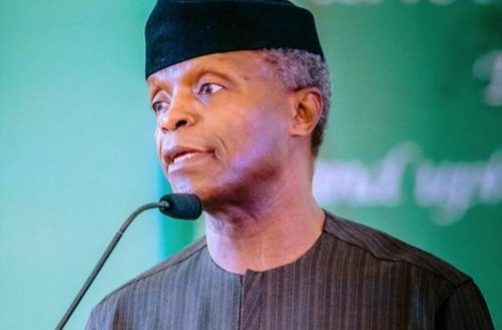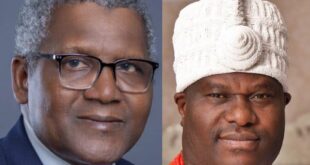ABUJA – The Special Adviser to the President on Ease of Doing Business, Dr Jumoke Oduwole has said that in the coming weeks, the Presidential Enabling Business Environment Council (PEBEC) chaired by the Vice President will boost the process of consolidating the gains recorded through the enactment of a new law that encompasses all the reforms into a single legislation.
Dr Oduwole, who disclosed this in a statement in Abuja on Wednesday, October 14, 2020, said the whole essence of having an Omnibus bill on business facilitation is to institutionalize all the reforms, primarily for ease implementation and sustenance of the efforts.
“After implementing several policies that helped in deepening reforms at both the national and sub-national levels, Nigeria’s rating on the global scale of ease of doing business improved in 2018 and 2019. The successes were driven by the implementation of over 140 reforms by the Presidential Enabling Business Environment Council (PEBEC) between 2016 and 2019,” he noted.
Giving further insights on the proposed legislation, Dr Oduwole said that the Enabling Business Environment Secretariat (EBES), an arm of the presidency driving the reforms, had in 2017, “sought and got the approval of PEBEC to adopt an Omnibus Bill as a legislative reform tool for business climate reform in Nigeria”.
She explained that “Over the next few months the EBES team engaged with stakeholders across the legal and business community for their input, including the Nigerian Bar Association – Section on Business Law (NBA SBL) the Nigerian Economic Summit Group (NESG) and the National Assembly Business Environment Roundtable (NASSBER) as well as other organized private sector stakeholders and members of the public at large.
“In Q4 2017, over 40 law firms from across the country supported an SBL Steering Committee pro bono to review and categorize the submissions received, which were then distilled into a document that formed the basis of the work of the drafting team from the Ministry of Justice (MoJ) that resulted in the earlier version of the draft bill prepared in 2018.”
“Referring to the objectives of the new bill, Dr Oduwole said it will among other things amend some provisions of the present legislative framework that have been identified by stakeholders as bottlenecks for the business climate reforms; and Introduce new provisions that would accentuate business climate reforms (For instance, components of the Executive orders like One Government principle, Default Approval etc.)”.
Continuing, she said “the Bill is now being reopened for review and further input because a number of the provisions earlier included in the draft have been addressed by the Financial Act 2019 and Companies and Allied Matters Act (CAMA) 2020.”
Speaking further on the essence of the bill, citing examples of countries that have enacted similar legislation, Dr Oduwole said “just like a standard Bill, Omnibus Bills are formal proposals to change laws that are voted on by lawmakers and transmitted to the executive arm for final approval.”
“The difference with Omnibus Bills is they contain numerous smaller Bills, ostensibly on the same broad topic. For instance, an Omnibus Tax Bill may include changes on everything from income, corporate, and sales taxes, but all of those issues can fit under the large umbrella of taxes.
The Omnibus Bill aims to consolidate legislative provisions and has been used in several countries across the globe. For example, the Eastern European country, Georgia, undertook such omnibus business climate legislation in 2005, when the country amended at least thirty (30) parliamentary legislations in one swoop,” she explained.
Stressing the need for an active public participation in the formulation of the new bill, the presidential aide said that the need to avoid a repeat of the controversies that greeted the Companies and Allied Matters Act (CAMA) 2020, has necessitated the call for Nigerians across diverse fields especially business operators, lawyers and accountants, to leverage the ongoing process of drafting the new law.
The deadline for the submission of inputs and suggestions has now been fixed for October 23.
 Startrend International Magazine For Your Latest News And Entertainment Gists
Startrend International Magazine For Your Latest News And Entertainment Gists





